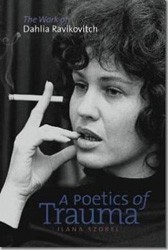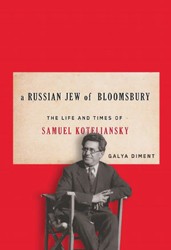By
– December 5, 2011
Sam Wasson is definitely a fan of Paul Mazursky, the writer-director of such 1970’s-era films as An Unmarried Woman, Bob & Carol & Ted & Alice, Harry and Tonto, and Next Stop, Greenwich Village. This volume of interviews sets out to pay homage to Mazursky much as Francois Truffaut paid homage to Hitchcock in his interviews with the master of suspense.
Wasson laments that Mazursky is widely acknowledged to be widely underrated (paradoxical as that may seem), and he labors mightily throughout to bolster his subject’s reputation. He rightly observes that Mazursky is underrated largely because his sensibility is not primarily “cinematic.” As a writer with deep roots in stage acting, Mazursky’s principal concern was to put compelling stories and performances on the screen, rather than to explore the boundaries of what film can do as a visual medium. When the mantle of greatness is reserved for distinctive innovators, relatively unstylistic auteurs like Mazurksy easily get lost in the shuffle.
Wasson’s efforts are not in vain, but they would have been more persuasive if he had not presumed that his readers would be as familiar with Mazursky’s work as he is. For better or worse, Mazursky’s films are not common currency, so breezy discussions of “the orgy” and “the rape,” lacking sufficient context, also lack force. While these amiable conversations between Wasson and his subject may prompt a pause while channel-surfing to take in a cablecast of Down and Out in Beverly Hills, they are unlikely to send many readers rushing to Netflix to order up their own Mazursky retrospectives.
Wasson laments that Mazursky is widely acknowledged to be widely underrated (paradoxical as that may seem), and he labors mightily throughout to bolster his subject’s reputation. He rightly observes that Mazursky is underrated largely because his sensibility is not primarily “cinematic.” As a writer with deep roots in stage acting, Mazursky’s principal concern was to put compelling stories and performances on the screen, rather than to explore the boundaries of what film can do as a visual medium. When the mantle of greatness is reserved for distinctive innovators, relatively unstylistic auteurs like Mazurksy easily get lost in the shuffle.
Wasson’s efforts are not in vain, but they would have been more persuasive if he had not presumed that his readers would be as familiar with Mazursky’s work as he is. For better or worse, Mazursky’s films are not common currency, so breezy discussions of “the orgy” and “the rape,” lacking sufficient context, also lack force. While these amiable conversations between Wasson and his subject may prompt a pause while channel-surfing to take in a cablecast of Down and Out in Beverly Hills, they are unlikely to send many readers rushing to Netflix to order up their own Mazursky retrospectives.
Bill Brennan is an independent scholar and entertainer based in Las Vegas. Brennan has taught literature and the humanities at Princeton and The University of Chicago. He holds degrees from Yale, Princeton, and Northwestern.





